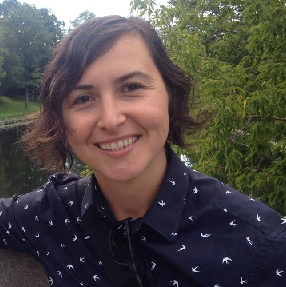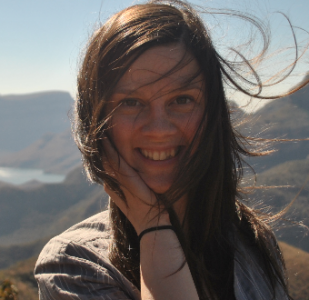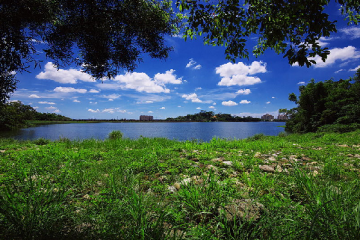IRES Seminar Series
Time: 12:30pm to 1:30pm (every Thursday)
Location: AERL Theatre (room 120), 2202 Main Mall
***************************************************************************
Sustainability education in a botanical garden promotes environmental knowledge, attitudes, and intentions to act
Abstract:
Creating behavior change at local levels to mobilize significant and widespread transition toward a sustainable future is one of the biggest challenges of our time. Botanical gardens play an important role in this shift because they provide an environment conducive to education, research, and conservation. Inspired by the UNFAO Farmer Field School, we developed a collaborative and community-based education program to engage adults from local businesses and organizations in topics of sustainability. Our Sustainable Communities Field School, hosted at UBC Botanical Garden, operates as a corporate team-building retreat event. Participants are guided through a 300-meter-long treetop canopy walk, visit a food garden, bee hive and engage in group activities while receiving verbal education about water, food, waste and biodiversity.
A total of 405 participants took part in the 2016-2017 study. We found that after their visit, Field School participants were significantly more knowledgeable about ecological topics, more connected to nature, and more willing to engage in sustainability actions compared to regular garden visitors who did not receive a guided tour. Our results suggest that a sustainability education program delivered at a botanical garden can be an effective model to promote environmental knowledge, attitudes and willingness to act.
Seminar video coming soon!

Ivana Zelenika
Bio:
I am a PhD Candidate working with co-supervision of Dr. Jiaying Zhao and Dr. John Robinson. Completed a Master’s of Environmental Studies at Queen’s University (Kingston), and a B.A. from Carleton University (Ottawa) in Environmental Studies, with a minor in Political Science.
As an active member in campus life I worked as a Zero Waste Coordinator with UBC Campus and Community Planning Sustainability Office for 2 years in a work-learn position. During this time, I collaborated with campus sustainability groups and departments in rolling out the recycling and composting infrastructure, prepared communication materials, and provided support in education and research of zero waste. My research is supported by SSHRC Doctoral Fellowship and the UBC Four Year Fellowship.
_____________________________________________________
Urban Water Resilience in Cape Town, South Africa
Abstract:
Resilience has become a key discourse and a policy tool in many urban contexts, including Cape Town. A recent addition to the 100 Resilient Cities Initiative, the City of Cape Town is facing the dual goals of dealing with increasingly more pronounced climate change impacts – such as intensified flooding and more frequent droughts – while also delivering equitable services and redressing historically entrenched spatial and socio-political inequalities. Facing one of its worst droughts in over a century, Cape Town is leveraging ideas of resilience in dealing with the current water shortages and planning for a new approach for water management in the future. To trace how the resilience agenda is unfolding in Cape Town and what the associated implications are for planning in the water sector, this research investigates situated notions of resilience through qualitative research conducted with city officials, managers and planners at the City of Cape Town.
Seminar video not available.

Bio:
Lucy Rodina is a PhD Candidate, supervised by Leila Harris, at the Institute for Resources, Environment and Sustainability, a Liu Scholar at the Liu Institute for Global Issues, and International WaTERS Graduate Fellow. She is also involved with the Water Ethics Network as an outreach coordinator, helping to develop strategies to promote awareness around water ethics. Lucy co-chairs Sustainable Water Future’s Water Ethics core working group. In her doctoral research, she studies the intersection of water governance, resilience and environmental justice in urban contexts. Her focus is on the nascent challenges to urban water governance in the face of global environmental change and their implications for transformation in the urban water sector. She engages critically with resilience, evaluating the various ways in which resilience thinking is reshaping urban water governance across different scales.

Photo credit: Mark Kao from flickr/Creative Commons